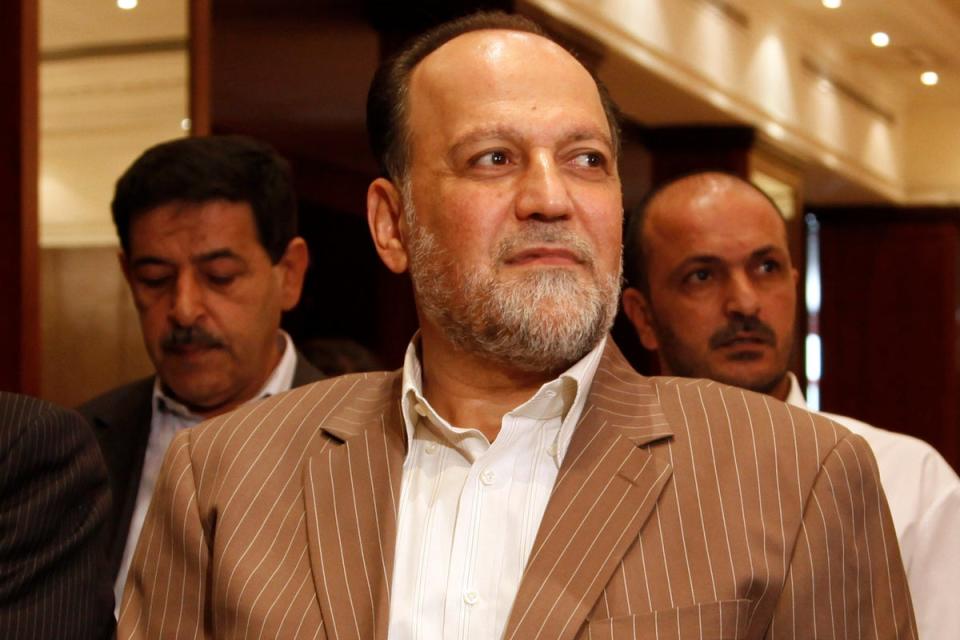At least nine people have been killed and thousands wounded after electronic pagers belonging to the Hezbollah militia simultaneously exploded in Lebanon and Syria.
The majority of the explosions took place in the southern suburbs of Beirut, the capital of Lebanon. Additional explosions were recorded in the Syrian capital of Damascus, where many Hezbollah members are based.
Hezbollah controls southern Lebanon, where they have been exchanging rocket fire with Israel across the border for nearly a year in solidarity with their fellow Iran-backed allies Hamas, who are fighting their own war against Israel.
This reignition of the conflict between Israel and Iran-backed militias across the Middle East kicked off when Hamas launched an incursion into Israel on 7 October, killing 1,200 people and taking 251 hostages inside Gaza, the Palestinian enclave controlled by Hamas.
A day later, after Israel began its aerial and later ground attack in the Gaza Strip, which has killed more than 41,000 Palestinians since, according to the local health ministry, Hezbollah began firing into northern Israel. They have vowed not to stop firing rockets until Israel ends its war in Gaza.
The explosions of hundreds, if not thousands of electronic pagers used by Hezbollah to communicate to one another could spell the latest iteration of this ongoing conflict. It also threatens to escalate the conflict yet again.
Who is responsible?
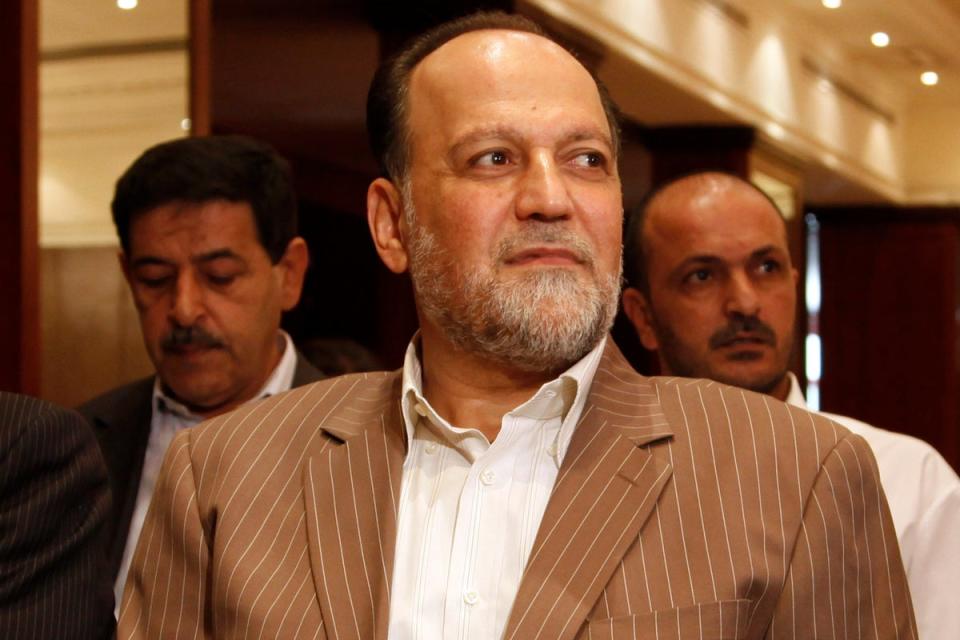
Both Hezbollah and the Lebanese government – they are separate authorities in Lebanon – quickly blamed Israel for the attack. The Israeli military, in keeping with its policy of not remarking on attacks outside of its own territory, told The Independent that it is “refraining from commenting”.
After initially releasing a statement saying they were investigating the explosions, Hezbollah issued a second comment saying they held Israel “fully responsible” for the attack, though they provided no evidence to substantiate this claim.
“After examining all the facts, current data, and available information about the sinful attack that took place this afternoon, we hold the Israeli enemy fully responsible for this criminal aggression that targeted civilians too,” the group said. They vowed to “punish” Israel by way of response.
Lebanon’s foreign ministry condemned what it called an “Israeli cyber attack”. The ministry said in a statement that it is preparing to submit a complaint to the United Nations Security Council.
“This dangerous and deliberate Israeli escalation is accompanied by Israeli threats to expand the scope of the war against Lebanon on a large scale, and by the intransigence of Israeli’s positions calling for more bloodshed, destruction and devastation,” it said.
How has this happened?
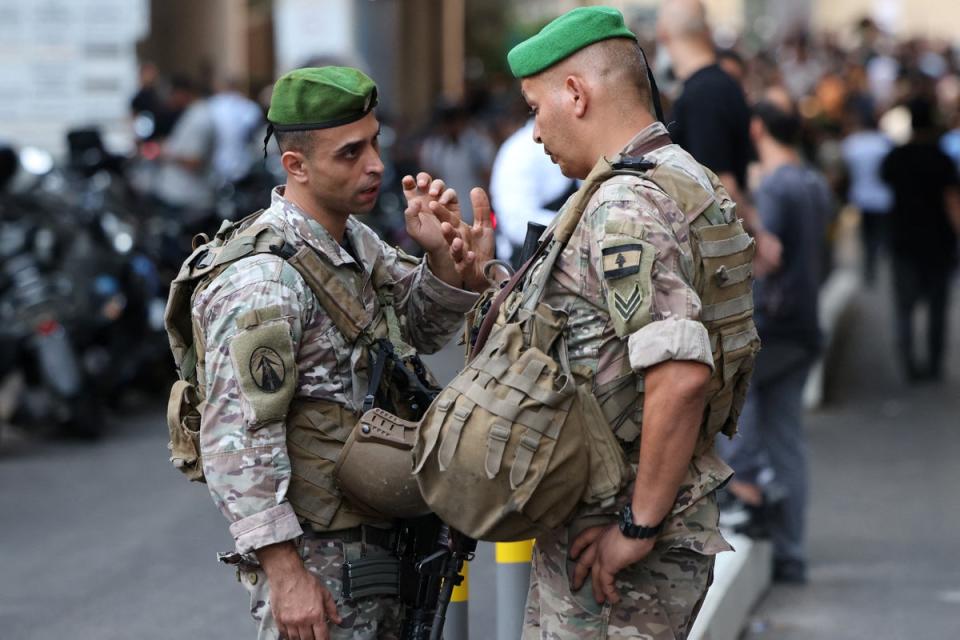
It still remains unclear how this has happened but sources close to Hezbollah said a new batch of electronic pagers had only just been delivered to the group in the last few days.
Hezbollah officials speculated that the devices may have been contaminated with malware that caused the pagers to overheat and explode. Another theory suggests that a charge had been manually placed in the devices and detonated remotely. That would suggest that whoever conducted the attack had access to the shipment of pagers prior to their delivery to Hezbollah.
Independent intelligence analysts have suggested the explosions looked like the type of “sophisticated” operation characteristic of Mossad, the Israeli intelligence services.
A source close to Hezbollah, requesting anonymity to discuss sensitive matters, told AFP news agency the blasts were an “Israeli breach” of its communication system. He didn’t elaborate.
Alternatively, the attack could have been done by sending signals to overload the individual circuits which would overheat the batteries and cause them to explode.
Attackers would have needed to know at least the make and models of the individual pagers to do this. That the attacks were coordinated suggests the attackers may have also known the serial numbers of the devices.
However the attack was coordinated, it represents a serious security breach for Hezbollah.
What does this mean for tensions in the area?
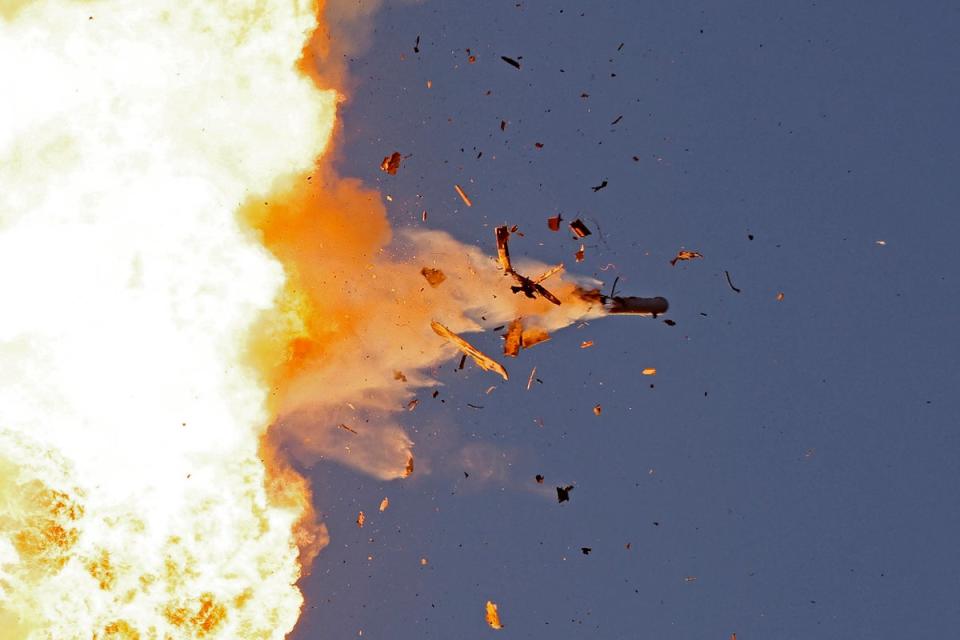
Fears that Israel’s war in the Gaza Strip could escalate to a war with Hezbollah in Lebanon have abounded for months.
Twice over the new year and then again this July, Hezbollah officials, including top commander Fuad Shukr, were killed by what appeared to be Israeli airstrikes on Beirut and the Iranian embassy in Damascus.
Hezbollah vowed to respond to each attack – and they have done the same with this latest incident. How that could manifest itself is unclear but previous responses have involved firing volleys of rockets and missiles into northern Israel.
The area has been evacuated while these attacks are ongoing but Israeli prime minister Benjamin Netanyahu on Tuesday officially included the safe relocation of the displaced civilians back to northern Israel as one of their main war aims.
What does whoever is behind this get out of it?
The objective of this assault is difficult to discern while the means with which it was conducted, as well as the perpetrator, remain unclear.
But, most clearly, the assault has significantly destroyed Hezbollah’s communication systems.
Beyond that, intelligence analysts have suggested that the culprit may be signalling to Hezbollah that it has access to its deliveries, which would be a major setback for the group.
Why do Hezbollah use pagers?
Hezbollah has been very cautious with its communications. Previous airstrikes targeting their private meetings have highlighted the strenth of Israeli intelligence.
Aware that mobile phone conversations could easily be hacked and traced, they are likely to have switched to the lo-fi pager alternative to make it harder to be watched by the Israeli intelligence services.
It is reported that senior Hamas officials, including the group’s leader Yahya Sinwar, who is hiding out in tunnels beneath the Gaza Strip, has resorted to using handwritten notes to communicate with his fellow Hamas personnel for this same reason.
Who has said what about it?
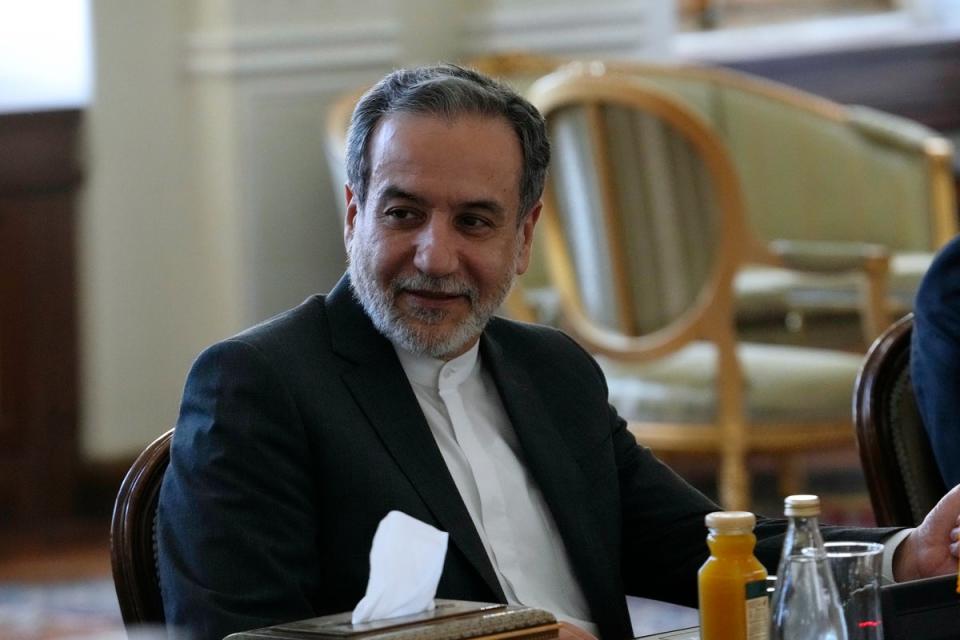
Responses across the world have varied. A source at the British foreign office said they were “monitoring the situation closely”.
“We are particularly concerned by reports of civilian casualties,” they said. The US expressed a similar sentiment, as did the United Nations.
UN spokesperson Stephane Dujarric described the developments in Lebanon as “extremely concerning”, adding: “We deplore the civilian casualties that we have seen. We cannot underscore enough the risks of escalation in Lebanon and in the region.”
Iran‘s foreign minister Abbas Araghchi has strongly condemned what he and other officials also claimed was an Israeli attack. Iran‘s state-run IRNA news agency reports that Araghchi made the comments in a phone conversation with his Lebanese counterpart, Abdallah Bou Habib.
Hamas issued a statement on the Telegram messenger app saying they “strongly condemned” what they also believed was an Israeli attack.
The Houthis, another Iran-backed militia based in Yemen, described the incident as a “heinous crime and a violation of Lebanese sovereignty”.
“We are certain that Lebanon is capable of facing all challenges, and has a resistance movement capable of deterring [Israel] and making it pay a heavy price for any escalation it may undertake against Lebanon,” spokesperson Mohammed Abdelsalam wrote on X, formerly Twitter.
EMEA Tribune is not involved in this news article, it is taken from our partners and or from the News Agencies. Copyright and Credit go to the News Agencies, email news@emeatribune.com Follow our WhatsApp verified Channel

